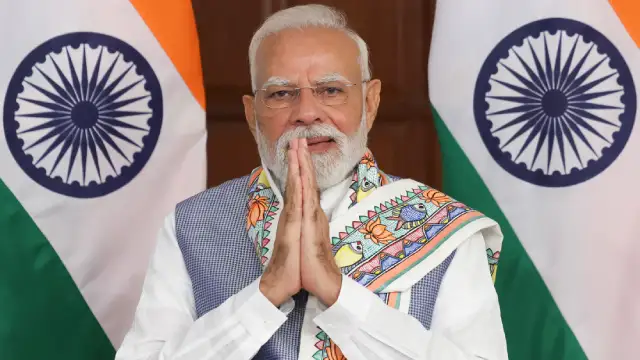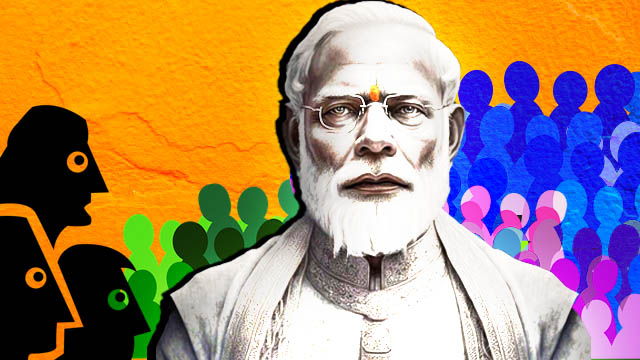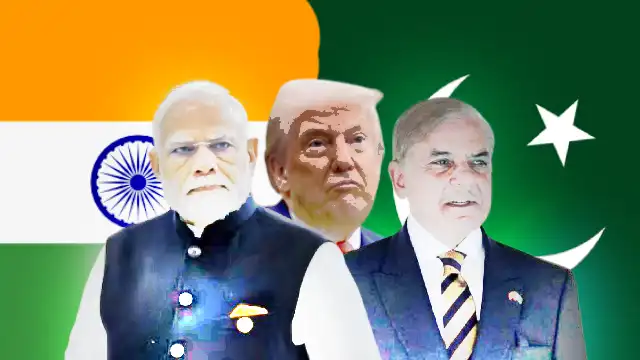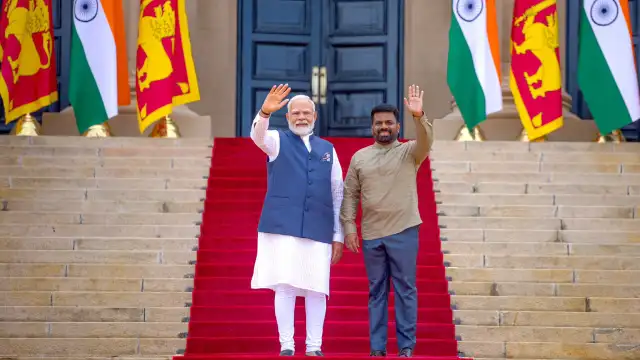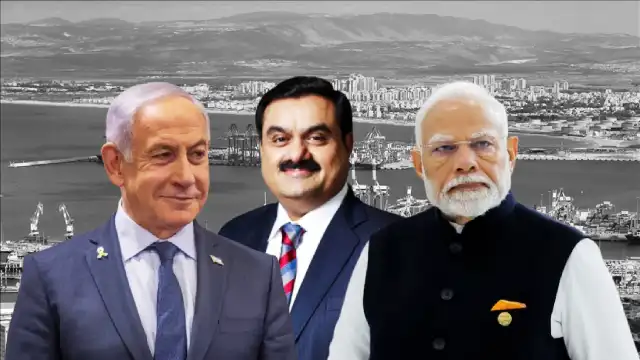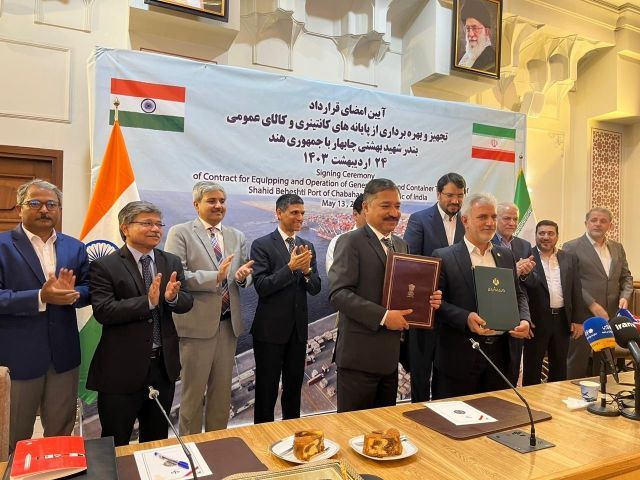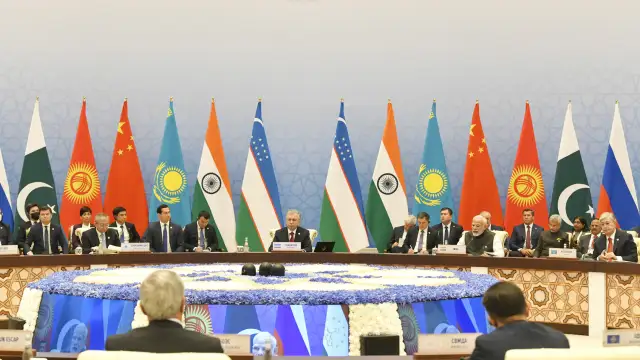In the early hours of Tuesday, September 30th, morning, Narendra Modi sent a message that stirred another controversy. India’s prime minister publicly endorsed Donald Trump‘s controversial Gaza peace plan—a move that laid bare the uncomfortable realities of his government’s foreign policy.
Mr Modi’s statement on X arrived just hours after Mr Trump unveiled his proposal to Benjamin Netanyahu during the Israeli prime minister’s White House visit on September 29th.
“We welcome President Donald J Trump’s announcement of a comprehensive plan to end the Gaza conflict,” Mr Modi wrote. The plan, he said, provides “a viable pathway to long-term and sustainable peace, security and development for the Palestinian and Israeli people, as also for the larger West Asian region.”
We welcome President Donald J. Trump’s announcement of a comprehensive plan to end the Gaza conflict. It provides a viable pathway to long term and sustainable peace, security and development for the Palestinian and Israeli people, as also for the larger West Asian region. We…
— Narendra Modi (@narendramodi) September 30, 2025
Hours later, Arabic and Hebrew translations appeared on his social media feed. Mr Modi unequivocally said India wanted the world—and especially Washington—to notice.
אנו מברכים את הודעתו של הנשיא דונלד ג’יי טראמפ על התוכנית המקיפה לסיום הסכסוך בעזה. התוכנית מספקת נתיב מעשי לשלום, ביטחון ופיתוח ארוך טווח ובר קיימא עבור העם הפלסטיני והעם הישראלי, וכן עבור כלל אזור מערב אסיה. אנו מקווים שכל הגורמים הנוגעים בדבר יתלכדו סביב יוזמתו של הנשיא טראמפ…
— Narendra Modi (@narendramodi) September 30, 2025
نرحب بإعلان الرئيس دونالد ترامب عن خطة شاملة لإنهاء الصراع في غزة. فهي تُمهد الطريق نحو سلام وأمن وتنمية مستدامة وطويلة الأمد للشعبين الفلسطيني والإسرائيلي، وكذلك لمنطقة غرب آسيا ككل. ونأمل أن تتكاتف جميع الأطراف المعنية خلف مبادرة الرئيس ترامب، وأن تدعم هذا الجهد لإنهاء الصراع…
— Narendra Modi (@narendramodi) September 30, 2025
Meanwhile, Mr Trump’s 20-point programme aims to establish a foreign government headed by the US president himself and Tony Blair, the former British prime minister, a war crime accused.
Trump’s tariffs force Modi’s hand
Mr Modi’s enthusiastic support for the Gaza peace plan reflects two pressing concerns. First, he aims to repair India-US ties badly damaged by Mr Trump’s decision to impose 50% tariffs on Indian exports. Second, he seeks to demonstrate that despite signing the Shanghai Cooperation Organisation‘s (SCO) Tianjin Declaration condemning Israeli aggression, India remains aligned with Western positions on Gaza.
The tariffs have disrupted India’s geopolitical strategy. Mr Modi’s government has spent years cultivating closer ties with Washington and Tel Aviv. Now, Mr Trump’s protectionist stance threatens that carefully constructed alignment. The US president remains adamant about punishing India for purchasing Russian oil.
Mr Modi is seizing every opportunity to woo the US back. Supporting Mr Trump’s controversial Gaza peace plan represents a desperate bid to appease Washington. His participation in the SCO Summit failed to serve as a bargaining chip. This latest move shows how far he will go.
Still, for Modi, irony cuts deep. When Mr Trump won the presidential election last year, Mr Modi exhibited confidence that the Republican administration would strengthen bilateral ties. His ruling Bharatiya Janata Party pinned its hopes on Mr Trump, whose Islamophobia inspires the far-right Hindu nationalist movement. Instead, Mr Trump’s hostile trade stance has caused severe embarrassment.
Uncomfortable parallel with Pakistan
By backing Trump’s Gaza peace plan, Mr Modi has adopted a stance remarkably similar to Pakistan’s. Shehbaz Sharif, Pakistan’s prime minister, supported the White House proposal following his visit to attend the UN General Assembly. He met Mr Trump on the sidelines and both cemented their ties.
This creates a major diplomatic embarrassment for New Delhi.
Firstly, Pakistan’s closeness with the US and its enjoyment of a lower tariff rate emphasise that Washington prefers it as a close partner. While Pakistan’s record of assisting the US in its expansion spree in South Asia is a major reason behind this, it also shows how Mr Modi’s efforts to isolate the neighbour diplomatically have failed.
Secondly, despite Mr Modi’s rhetoric against Pakistan, India has adopted a position matching its rival on the Gaza peace plan. It shows India remains at par with Pakistan, which has a broken economy, when it comes to appeasing the US, despite all claims of becoming a superpower.
I welcome President Trump’s 20-point plan to ensure an end to the war in Gaza.
— Shehbaz Sharif (@CMShehbaz) September 29, 2025
I am also convinced that durable peace between the Palestinian people and Israel would be essential in bringing political stability and economic growth to the region.
It is also my firm belief that…
India’s mainstream media celebrated External Affairs Minister S Jaishankar‘s UNGA speech criticising Pakistan for sponsoring terrorism. Yet they remained silent when Mr Trump hosted Mr Sharif, indicating growing diplomatic proximity.
The US president has repeatedly claimed he brokered peace between India and Pakistan during their four-day border skirmish in May. This assertion has become a bone of contention between Mr Modi and the Opposition. The prime minister denies any US mediation without explicitly naming Washington or challenging Mr Trump. His government remains silent whenever Mr Trump reiterates the claim. The Opposition demands that he explicitly state Mr Trump is lying. His evasive response has triggered doubts about the US’s influence on Indian foreign and defence policies.
Gaza jeopardy
Mr Modi supported Israel’s aggression on Gaza following the October 7th 2023 attacks. His unconditional backing created problems, forcing a partial retreat. India has not condemned Israel once for actions the UN has labelled genocide. Although Mr Modi signed the SCO’s Tianjin Declaration, India ensured the text avoided using the word genocide.
India awaits Mr Netanyahu’s visit later this year. It has abstained from crucial votes on Gaza at the UN to avoid angering Tel Aviv. Mr Modi’s meek response has earned global criticism. Yet his government maintains the same approach.
Mr Jaishankar claimed India “will always be a voice of the Global South” during his UNGA speech. However, he mentioned Gaza only once by name. He referred to West Asian tensions at the beginning but provided no specifics. “In the case of conflicts, especially Ukraine and Gaza, even those not directly involved have felt its impact,” he said. “Nations who can engage all sides must step up in the search for solutions. India calls for an end to hostilities and will support any initiative that will help restore peace,” he added.
His evasive approach showed how India is abandoning a key Global South issue. India remained silent not just on Israeli aggression but also on the forceful starvation policy Israel has adopted. Mr Jaishankar did not speak about the aid required for Gaza. This contrasts sharply with other Global South leaders.
Setting dangerous precedent
Mr Modi’s endorsement of Mr Trump’s peace plan reveals the opportunism driving Indian foreign policy. In pursuing this course, his government risks India’s long-term strategic interests in West Asia. The prime minister has failed to take a principled stance on Gaza. He extends support to Mr Trump’s plan, which Palestinian resistance opposes. He remains silent on human rights violations. These acts further isolated India from the traditional Global South allies.
The consequences may prove severe. As Mr Modi’s foreign policy blunders alienate potential allies, rivals China and Pakistan can exploit the gap.
They will push forward their causes while India loses credibility.
China, India’s neighbour and rival, has taken a stronger position.
“China advocates upholding the principle of ‘Palestinians governing Palestine’ and pursuing the two-state solution,” the Chinese Ministry of Foreign Affairs said.
For a government that claims to champion the Global South and seek greater responsibility at the UN, the contradictions are glaring.
Mr Modi’s early morning post on Gaza was meant to reset relations with Washington. Instead, it may have exposed how far his government will bend to appease an unpredictable American president—even at the cost of principle, consistency and India’s standing in the world.
Join our channels on Telegram and WhatsApp to receive geopolitical updates, videos and more.

